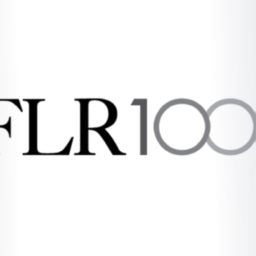 Rates and size of the capacity fee
Rates and size of the capacity fee- Current status of capacity fee discounts
- Energy cost optimization measures
- Obligation to carry out an energy efficiency audit
Capacity fee
Pursuant to the Act of 8 December 2017 on the power market (“Act”), the end-users shall be charged with so-called capacity fee in order to finance capacity remuneration paid to entities providing capacity services. Initially, the capacity fee was to be charged from 1 October 2020 onwards, however, the provisions of the Act of 14 August 2020 amending the Act on bio-components and liquid biofuels and certain other acts (“Amendment”), delayed the commencement of the collection of this fee until 1 January 2021.
Rates and size of the capacity fee
In November 2020 the President of the Energy Regulatory Office announced the rate of the capacity fee as well as selected hours subject to the capacity fee.
The capacity fee will be charged with respect to households based on the lump sum rate depending on their annual electricity consumption, while for other consumers it will be charged on the electricity consumed within selected hours on working day.
Pursuant to Article 74(4) of the Power Market Act (“Act”), the President of the Energy Regulatory Office shall publish in the Bulletin of the Energy Regulatory Office by 30 September each year:
- capacity fee rates for the following year;
- selected hours of the day falling on the system’s peak power demand, determined separately for quarters of the year of supply – for the purpose of calculating the capacity fee payable by customers.
By way of exception, pursuant to Article 16 of the Amendment, the rates for 2021 were published by the President of ERO until 30 November 2020.
In the information issued on 19 November 2020, the President of ERO announced that the selected hours of the working day subject to the capacity fee payable in 2021 by end users other than household electricity consumers shall include fifteen consecutive hours between 7.00 a.m. and 10.00 p.m.
On 30 November, the President of the ERO announced the capacity fee rates for 2021, which are as follows:
- PLN 1.87 per month – in relation to end users consuming electricity in a household, who consume less than 500 kWh of electricity per year;
- PLN 4.48 per month – for household electricity end users consuming between 500 kWh and 1 200 kWh of electricity per year;
- PLN 7.47 per month – for household electricity end-users, using more than 1,200 kWh to 2,800 kWh of electricity per year;
- PLN 10.46 per month – for household electricity end-users, using more than 2800 kWh of electricity per year;
- 76.20 PLN/MWh – for final customers other than households.
Current status of capacity fee discounts
While adopting the capacity mechanism, it was anticipated that industrial consumers (energy-intensive users) would be able to benefit from discounts on the capacity fee – analogous to discounts on renewable energy fee, or discounts on cogeneration fee. The discount on the capacity fee was actually provided in the statute subject to the condition precedent that the European Commission declares such discount being State aid compatible with the internal market (or the Commission issues a decision stating that this measure does not constitute State aid at all). Despite the 3-year period since the adoption of the Act on the capacity market, the notification of the discount on the capacity fee for industrial customers has not been successful, and thus there is a high probability that it will not enter into force. The Draft that has been submitted for consultation does not refer in any way to the capacity fee discount.
Remedial action
As a result of the capacity fee entry into force, it is not only necessary to include this fee in budgets for electricity supplies (distribution services) but it is also necessary to verify optimization measures available to reduce the burden associated with this fee, such as:
- measures to improve energy efficiency, including reducing peak electricity consumption;
- investments in own energy generation sources (renewable energy sources, cogeneration installations, other);
- investments in energy storage, etc.
In addition, customers have the possibility to earn income from the provision of the so-called „DSR services”, i.e. reduction of the grid electricity consumption at the request of the transmission system operator (within selected hours when the operator identifies the risk of insufficient generation reserves). Such services can be provided to the operator either directly or through a professional aggregator, i.e. an entrepreneur who, having a direct contract with the TSO, concludes a relevant DSR contract with the electricity end-user, prepares such end-user to provide the services and pays the agreed remuneration for provide these services. In this way, customers can derive revenues from DSR services contracted by the operator on the capacity market (i.e. may provide services financed from the capacity fee) or under other DSR programs organized by the operator outside the capacity market.
SK&S Energy and Infrastructure Team will be happy to provide you assistance in terms of identification and implementation of proper instruments to optimize the cost of purchasing electricity.
Energy efficiency audit
As of 1 October 2020 there would be 4th anniversary since the Act of 20 May 2016 on energy efficiency entered into force, such act imposing on entrepreneurs the obligation to perform the enterprise energy efficiency audits at least once every 4 years, with the first audit to be carried out no later than October 1, 2017. Thus, entrepreneurs that performed the energy efficiency audit in 2016 and 2017 are required to perform the next audit soon.
Considering the time necessary to carry out the energy efficiency audit (including the necessary measurements and calculations as well as preparing the report) and notifying the President of ERO on the conclusions of the audit, as well as bearing in mind the current situation related to the state of the epidemic and sanctions for violation of the audit obligation (financial penalty up to 5% of revenue entrepreneurs in the previous tax year), one should remember to contract the services related to the energy efficiency audit early enough.
Energy efficiency audit delivered by professionals may also identify activities/investments that will help to increase energy efficiency, reduce energy consumption and optimize the costs of purchasing energy, as well as obtain additional revenue from the sale of so-called white certificates awarded in connection with the implementation of energy efficiency investments.
An obligation to perform the energy efficinecy audit applies to any entrepreneur which at least in one of the last two financial years:
- employs over 250 employees
lub
- the annual net turnover from the sale of goods, goods and services and financial operations exceeded the PLN equivalent of EUR 50 million, or the sum of its balance sheet assets prepared at the end of one of those years exceeded the PLN equivalent of EUR 43 million.
Entrepreneurs belonging to capital groups but not meeting the above employment and financial conditions individually are not required to perform the energy efficinecy audit.
Entrepreneurs would be exempted from the obligation to perform the energy efficiency audit if they implemented:
- energy management system specified in the Polish Standard for energy management systems, requirements and recommendations of use (PN-EN ISO 50001) certified by an independent entity, or
- EMAS environmental management system,
– if an energy efficiency audit was carried out under these systems.
To be exempted from the obligation to carry out an audit, energy inspections carried out regularly by owners of an energy management system in accordance with the PN-EN ISO 50001 standard must meet the minimum requirements set out in the Energy Efficiency Act.
The provisions of the Anti-Crisis Shield do not modify the date of the energy efficiency audit. Due to the current epidemiological situation and the growing demand of enterprises for energy auditing, we recommend selecting the auditor in advance.
The sanction for failure to carry out an energy efficiency audit is a financial penalty imposed by decision of the President of ERO in the amount of up to 5% of the income of the punished entrepreneur obtained in the previous tax year.











